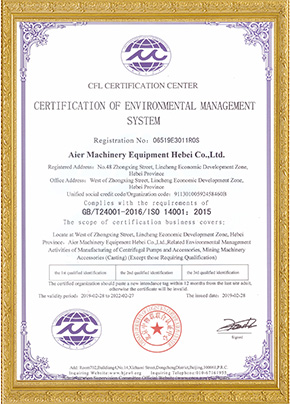Dec . 12, 2024 03:46 Back to list
High Chrome Alloy Slurry Pump Impellers for Enhanced Durability and Performance in Heavy Applications
Understanding High Chrome Alloy Slurry Pump Impellers
Slurry pumps are essential components in various industrial applications, particularly in mining, mineral processing, and wastewater management. Among their crucial parts, the impeller plays a pivotal role in the effective transport of slurries, which are mixtures of solids and liquids. High chrome alloy slurry pump impellers have garnered significant attention in recent years due to their durability and performance characteristics. This article explores the construction, benefits, and applications of high chrome alloy slurry pump impellers.
Construction of High Chrome Alloy Impellers
High chrome alloy impellers are manufactured from high-chromium white iron, a material known for its impressive hardness and wear resistance. Typically, the chromium content in these alloys ranges from 25% to 30%, which significantly enhances their mechanical properties. The casting process used to create these impellers involves advanced techniques that ensure precise dimensions and consistent quality.
The unique metallurgical composition of high chrome alloys allows them to withstand severe abrasive conditions often encountered in slurry applications. This makes them an ideal choice for industries that deal with heavy solids, such as coal, minerals, and other materials that can cause rapid wear and tear on traditional pump components.
Benefits of High Chrome Alloy Impellers
1. Exceptional Wear Resistance One of the most significant advantages of high chrome alloy impellers is their excellent wear resistance. This property extends the longevity of the pump and reduces maintenance costs, making it a cost-effective option for companies involved in heavy-duty operations.
2. Corrosion Resistance In addition to abrasion, slurry pumps often encounter corrosive substances. High chrome alloys exhibit remarkable resistance to corrosion, ensuring reliable performance in harsh chemical environments.
3. High Strength and Toughness The high strength-to-weight ratio of high chrome alloy impellers allows them to handle substantial operational stresses without deforming or breaking. This robustness is crucial for maintaining the reliability of pumps during demanding processes.
high chrome alloy slurry pump impeller

4. Enhanced Performance The precise engineering of high chrome alloy impellers results in better hydraulic performance. This enables more efficient fluid flow, which can translate to reduced energy consumption and improved operational efficiency.
5. Ease of Maintenance High chrome alloy impellers are designed for easy replacement and maintenance. Their modular design can simplify repairs, reducing downtime and enhancing productivity in industrial operations.
Applications of High Chrome Alloy Impellers
High chrome alloy slurry pump impellers are prevalent in various sectors
- Mining and Mineral Processing In these industries, high chrome impellers are subjected to extreme conditions, handling abrasive slurries containing sand, gravel, minerals, and ores. Their durability enables efficient transportation of these materials through the processing plants.
- Water Treatment Plants Slurry pumps are also used in wastewater management, where they transport contaminated water mixed with solid waste. The corrosion resistance of high chrome alloys makes them suitable for applications dealing with aggressive chemicals and pollutants.
- Construction and Civil Engineering In construction sites, these impellers facilitate the movement of cement and other particulate materials through various channels, ensuring smooth operations and timely completion of projects.
Conclusion
In summary, high chrome alloy slurry pump impellers represent a significant advancement in pump technology. Their combination of wear and corrosion resistance, strength, and operational efficiency makes them highly favorable in numerous industrial applications. As industries continue to seek higher performance and lower operational costs, the adoption of high chrome alloy impellers is set to rise, establishing them as a standard choice for projects that demand reliability and durability. With ongoing developments in materials science, we can expect further enhancements in the capabilities of these essential components, helping industries to overcome the challenges associated with transporting abrasive and corrosive slurries.
-
Top Submersible Pump Companies High Quality Manufacturers & Suppliers in China
NewsJul.08,2025
-
High Quality Seal for 5 Inch Dredge Pump Reliable China Manufacturer & Supplier
NewsJul.08,2025
-
High-Efficiency Slurry Sand Pump from Leading China Manufacturer – Durable & Reliable Solutions
NewsJul.07,2025
-
High-Quality Slurry Pump Made in China Durable Steel Mill Slurry Pump & Parts
NewsJul.07,2025
-
High Quality Excavator Dredge Pump Manufacturer & Suppliers from China – Reliable, Durable, Efficient Solutions
NewsJul.07,2025
-
Wholesale Slurry Pump Closed Impeller Supplier High Efficiency China Slurry Pump Closed Impeller
NewsJul.06,2025
